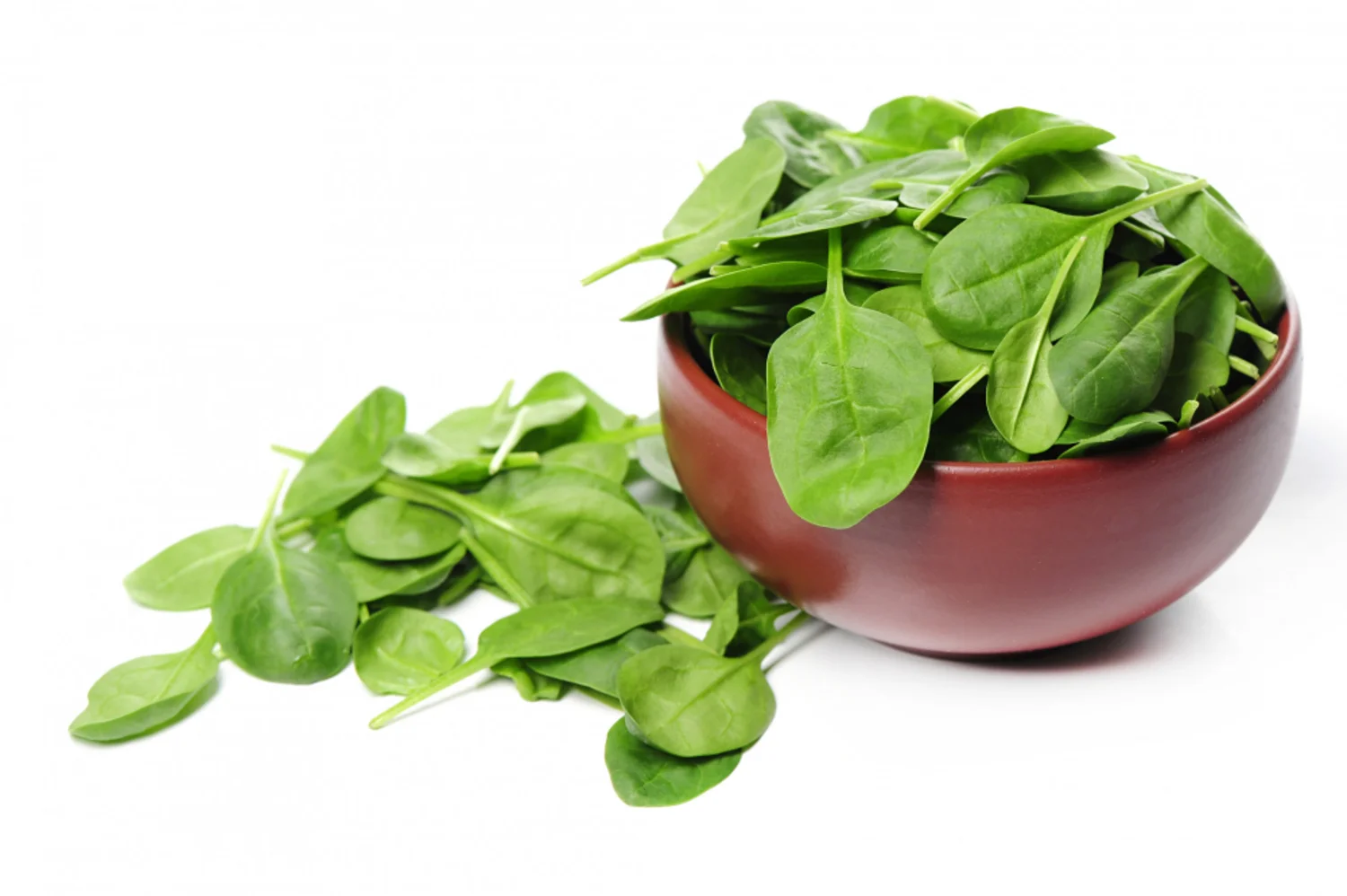Vitamin A is an essential nutrient that plays a critical role in maintaining good health. It is necessary for the proper functioning of the immune system, vision, and skin health. While Vitamin A can be obtained through supplements, the best way to ensure you’re getting enough of this vital nutrient is through a healthy and balanced diet. In this article, we will discuss the top 11 foods rich in Vitamin A and their benefits.
Understanding of Vitamin A
What is Vitamin A?
Vitamin A is a fat-soluble vitamin and has an essential role in numerous functions. It is crucial for the maintenance of healthy skin, vision, immune system, and organ function. (1)
Vitamin A exists in two forms: –
- Retinoids and
- Carotenoids
Retinoids are found in animal products such as liver, fish, and dairy products. They are the active form of vitamin A and are easily absorbed by the body. Retinoids are essential for healthy vision, immune function, and skin health (2, 3).
Carotenoids, on the other hand, are found in plant-based foods such as carrots, sweet potatoes, spinach, and kale. They are converted into vitamin A in the body, but the conversion rate varies from person to person (4).
Carotenoids are important antioxidants that protect the body from damage caused by harmful molecules called free radicals.
Why is Vitamin A Important for Your Body?
Vitamin A is essential for the body because it is involved in various physiological processes, including (5):
- Vision: Vitamin A is required for the production of a pigment called rhodopsin, which helps us see in low light conditions.
- Immunity: Vitamin A is important for the development and maintenance of the immune system, helping to protect the body from infections and diseases.
- Growth and development: Vitamin A plays a vital role in the growth and development of the body, particularly in the formation of healthy bones and teeth.
- Skin health: Vitamin A promotes healthy skin by regulating cell growth and preventing the buildup of dead skin cells.
- Reproductive Health: Vitamin A is important for reproductive health in both men and women. It plays a crucial role in the production of sperm and is necessary for the development of a healthy fetus during pregnancy.
How much Vitamin A per day do you need daily?
The recommended daily intake of vitamin A varies depending on age, gender, and other factors.
For adults, the recommended daily intake of vitamin A is 900 micrograms (mcg) for men and 700 mcg for women (6)
It is important to note that consuming too much vitamin A can be harmful, so it is best to get the recommended amount through a balanced diet that includes both animal and plant sources of vitamin A.
Foods Rich in Vitamin A for a Healthy Diet: Top 11 Sources Of Vitamin A
There are plenty of delicious and healthy foods that are rich in this important nutrient. Here are the top 11 foods rich in Vitamin A for a healthy diet:
1. Sweet Potatoes

Sweet potatoes are a delicious and versatile vegetable that is an excellent source of Vitamin A. One medium-sized sweet potato contains 400% of the daily recommended intake of Vitamin A. This makes sweet potatoes one of the best plant-based sources of this essential nutrient (7).
Studies have found that consuming sweet potatoes may help to increase the abundance of beneficial gut bacteria and improve overall gut health (8).
In addition to vitamin A, sweet potatoes are also a good source of fiber, potassium, and other important vitamins and minerals. They are versatile and can be prepared in a variety of ways, including roasted, mashed, or baked.
2. Carrots

Carrots are another popular vegetable that is known for its high Vitamin A content. One medium-sized carrot contains 200% of the daily recommended intake of Vitamin A (9)
They are also low in calories and high in fiber, vitamin K, potassium, and other important nutrients.
There have been several studies that have investigated the potential benefits of carrots for eye health.
A study published in NCBI found that higher intake of carotenoids, including beta-carotene from carrots, was associated with a lower risk of age-related macular degeneration, a common eye condition that can lead to vision loss (10).
Carrots are a versatile vegetable that can be eaten raw or cooked in a variety of ways. They can be added to salads, soups, stews, or stir-fries, or enjoyed as a healthy snack with hummus or other dips.
3. Spinach

Spinach is another vegetable that is a good source of vitamin A, as well as other important nutrients like vitamin C, vitamin K, and iron (11).
One cup of cooked spinach contains 100% of the daily recommended intake of Vitamin A.
Like carrots, spinach has potential benefits for eye health due to its high content of carotenoids.
A study published in NCBI found that a higher dietary intake of lutein and zeaxanthin, two carotenoids found in spinach, was associated with a lower risk of age-related macular degeneration (12).
Including spinach in your diet can be easy and delicious. It can be added to salads, soups, smoothies, and a variety of other dishes.
4. Dried Apricots

Dried apricots are a tasty and nutritious snack that are a great source of several essential vitamins and minerals, including vitamin A (13).
One serving of dried apricots (about 5-6 pieces) contains approximately 35% of the recommended daily intake of vitamin A.
Research has shown that consuming adequate amounts of Vitamin A can help reduce the risk of age-related macular degeneration, a leading cause of vision loss in older adults (14, 15).
Vitamin A also plays a role in reducing the risk of certain cancers, including lung cancer, and may improve the symptoms of some skin conditions such as acne.
However, dried apricots also contain a lot of sugar and calories, so it is important to consume them in moderation.
5. Beef Liver

Beef liver is a nutrient-dense food that is high in many vitamins and minerals, including Vitamin A. One ounce of beef liver contains 200% of the daily recommended intake of Vitamin A (16).
Beef liver is also an excellent source of vitamin B12, a nutrient that is important for red blood cell formation and neurological function. Iron and copper, which are also found in beef liver, are important for blood and immune function, respectively.
6. Mangoes

Mangoes are a tropical fruit that is high in Vitamin A, with one cup containing 35% of the daily recommended intake. They are also a great source of Vitamin C, fiber, and antioxidants.
Vitamin A is essential for maintaining healthy vision, immune function, and skin health. Research has also suggested that mangoes may have potential health benefits beyond their vitamin A content (17). For example-
A study published in NCBI found that consuming mangoes was associated with a reduction in blood pressure and markers of inflammation in obese adults (18).
Mangoes can be eaten fresh, blended into smoothies, or used to make salsa and chutney.
7. Papayas

Papayas are another tropical fruit that is packed with nutrients, including Vitamin A. One cup of papaya contains 30% of the daily recommended intake of Vitamin A. Papayas are also high in Vitamin C, fiber, and antioxidants, making them a perfect addition to any fruit salad or smoothie (19).
Vitamin A is essential for maintaining healthy vision, immune function, and skin health. In addition to their vitamin A content, papayas are also a good source of vitamin C, dietary fiber, and antioxidants.
These nutrients may help protect the body from oxidative stress and inflammation, which can contribute to the development of chronic diseases like heart disease and cancer.
8. Butternut Squash

Butternut squash is a winter squash that is high in many nutrients, including Vitamin A (20).
One cup of cooked butternut squash provides about 450% of the daily recommended intake of vitamin A, making it an excellent choice for maintaining healthy vision, immune function, and skin health.
It is also an excellent source of fiber, potassium, and Vitamin C, making it a great addition to soups and stews.
A study published in NCBI found that butternut squash extract was effective in reducing inflammation and oxidative stress in individuals with type 2 diabetes (21).
Another study found that consuming a diet rich in carotenoids, like those found in butternut squash, was associated with a reduced risk of developing breast cancer in women (22).
Overall, butternut squash is a delicious and nutritious vegetable that can provide a range of potential health benefits.
9. Sweet red pepper

Sweet red bell peppers are a nutritious vegetable that can provide a significant amount of Vitamin A, as well as other essential vitamins and minerals. A serving of half-cup of raw sweet red bell pepper can provide around 13% of the Daily Value (DV) of Vitamin A, which is important for maintaining healthy vision, skin, and immune system (23).
In addition to Vitamin A, sweet red bell peppers are also rich in other vitamins and minerals, such as Vitamin C, Vitamin B6, and folate. They are also a great source of antioxidants, such as capsanthin, which can help protect the body from damage caused by free radicals.
Bell peppers also contain quercetin, which has anti-inflammatory and antihistamine properties.
To enjoy the benefits of sweet red bell peppers, try incorporating them into your meals. For example, you can scramble them with eggs, add them to sandwiches, or serve them sliced with a healthy dip.
10. Muskmelon

Muskmelon is a sweet and juicy fruit that is rich in important nutrients, including vitamin A, vitamin C, potassium, and dietary fiber. These nutrients can help support a healthy digestive system, boost the immune system, and reduce the risk of chronic diseases such as heart disease and cancer (24).
One cup of cantaloupe contains 30% of the daily recommended intake of Vitamin A.
Research has shown that cantaloupe may have additional health benefits as well. For example-
A study published in NCBI found that consuming cantaloupe may help to reduce inflammation in the body, which is associated with numerous chronic health conditions (25).
11. Eggs

Eggs are a versatile and nutrient-dense food that is high in many vitamins and minerals, including Vitamin A. One large egg contains 6% of the daily recommended intake of Vitamin A. Eggs are also a great source of high-quality protein, healthy fats, and choline, making them an excellent addition to any meal (26).
Eggs also provide healthy fats, such as omega-3 fatty acids, which are essential for brain function and heart health. They are also a good source of Vitamin D, and Vitamin B12.
In addition to these nutrients, eggs also contain minerals such as iron, zinc, and selenium, which are important for maintaining a healthy immune system.
Eggs are versatile and can be cooked in many ways, including boiled, fried, or scrambled. They can be eaten on their own or used as an ingredient in various dishes such as omelets, frittatas, and baked goods. Overall, eggs are a nutritious and delicious addition to any diet.
Supplements for Vitamin A

There are several supplements available for Vitamin A, which is a crucial nutrient for maintaining healthy vision, skin, and immune system function. Here are some common options:
-
Cod liver oil: This supplement is a rich source of vitamin A, as well as omega-3 fatty acids. However, it’s important to note that cod liver oil can also be high in vitamin D, which can be a concern if you’re already getting enough vitamin D from other sources.
- Fish oil: This supplement is a good source of omega-3 fatty acids, which are important for overall health. Some fish oil supplements also contain vitamin A.
- Retinyl palmitate: This is a synthetic form of vitamin A that is commonly found in multivitamins and other dietary supplements. It’s often used to fortify foods like milk and cereal.
-
Beta-carotene: This is a plant-based form of vitamin A that is found in foods like carrots, sweet potatoes, and spinach. Beta-carotene is converted to vitamin A in the body, so it can be a good option for people who prefer plant-based supplements.
-
Vitamin A drops: These are drops that are specifically formulated for infants and young children who may not be getting enough Vitamin A in their diet. They are typically available in liquid form and are easy to administer.
Risks of Vitamin A Deficiency
Vitamin A deficiency can lead to several health problems. Some of the common risks associated with vitamin A deficiency are (27, 28):
- Night blindness: Vitamin A is essential for maintaining healthy vision, particularly in low-light conditions. A lack of vitamin A can lead to a condition called night blindness, which makes it difficult to see in dim light.
- Dry eyes: Vitamin A plays an important role in maintaining the moisture levels in the eyes. A deficiency of this vitamin can lead to dry eyes, which can cause discomfort, irritation, and vision problems.
- Skin problems: Vitamin A is important for maintaining healthy skin. A lack of this vitamin can lead to dry, scaly, and itchy skin, as well as an increased risk of developing acne and other skin problems.
- Compromised immune function: Vitamin A is essential for the proper functioning of the immune system. A deficiency of this vitamin can weaken the immune system, making the body more vulnerable to infections and diseases.
Risks of Vitamin A Overdose
Vitamin A is a necessary nutrient for our body, but consuming too much of it can lead to an overdose, also known as hypervitaminosis A. Some of the risks associated with vitamin A overdose are (29):
- Nausea and vomiting: Consuming excessive amounts of vitamin A can cause gastrointestinal symptoms like nausea, vomiting, and abdominal pain.
- Dizziness: Overdosing on vitamin A can lead to dizziness and lightheadedness, making it difficult to carry out everyday activities.
- Headache: Vitamin A overdose can also cause headaches, which can be severe and persistent.
- Hair loss: Consuming too much vitamin A over a prolonged period can lead to hair loss, as well as dry, itchy skin and other skin problems.
- Birth defects: Pregnant women who consume excessive amounts of vitamin A are at risk of giving birth to babies with birth defects, such as cleft palate and neural tube defects.
How to Incorporate More Vitamin A into Your Diet
Incorporating more Vitamin A into your diet is easy, thanks to the abundance of foods that are high in this essential nutrient. Some simple ways to increase your intake include:
1. Snacking on raw carrots or sweet potato fries
Carrots and sweet potatoes are both rich in beta-carotene, which the body converts to vitamin A. Snacking on raw carrots or making sweet potato fries can be a tasty way to increase your vitamin A intake.
2. Adding spinach or kale to your smoothies
Leafy green vegetables like spinach and kale are excellent sources of vitamin A. Adding them to your smoothies is an easy way to incorporate more vitamin A into your diet.
3. Making a mango or papaya salsa to serve with grilled fish or chicken
Mangoes and papayas are both rich in beta-carotene, and can be used to make a delicious salsa that pairs well with grilled fish or chicken.
4. Adding butternut squash to soups and stews
Butternut squash is another excellent source of vitamin A. Adding it to soups and stews is an easy way to increase your vitamin A intake.
5. Making an omelet with eggs and beef liver
Beef liver is one of the richest sources of vitamin A. Making an omelet with eggs and beef liver is a tasty way to incorporate this nutrient into your diet.
Cooking tips for Vitamin A

- To maximize vitamin A absorption, cook vegetables like sweet potatoes and carrots with a healthy fat like olive oil or coconut oil.
- When cooking spinach, use a small amount of acid like lemon juice to increase absorption of its nutrients.
- Choose dairy products like cheese and yogurt that are fortified with vitamin A.
- When cooking liver, soak it in milk for an hour to reduce its strong flavor.
Read more- How to Stop Cough at Night: 12 Best Home Remedies.
Learn more- CBD Oil: A Comprehensive Guide of Its Benefits, Risks, and Uses.
Read more- Quick and Easy Ways to Eliminate Bitter Taste in Your Mouth.
Conclusion
Vitamin A is an essential nutrient that plays a crucial role in several bodily functions. By incorporating more foods that are high in Vitamin A into your diet, you can enjoy numerous benefits, including improved vision health, immune function, skin health, and reproductive health.
It is important to consume a balanced diet that includes foods rich in Vitamin A, such as sweet potatoes, carrots, spinach, mangoes, eggs, and liver, among others. Incorporating a variety of Vitamin A-rich foods into your diet can help support your overall health and wellbeing.
However, it is important to also keep in mind that excessive intake of Vitamin A can have adverse effects, so it is recommended to consume it in moderation and talk to a healthcare professional before taking supplements.
FAQs (Frequently asked questions)
Q. What is the daily recommended intake of Vitamin A?
Ans. The daily recommended intake of Vitamin A is 900 micrograms (mcg) for men and 700 mcg for women.
Q. Can I get too much Vitamin A from my diet?
Ans. Yes, it is possible to consume too much Vitamin A, which can lead to toxicity. It is important to follow the recommended daily intake and avoid taking high-dose supplements without consulting a healthcare professional.
Q. Are there any risks associated with taking cod liver oil?
Ans. Yes, cod liver oil can interact with certain medications and may cause side effects such as stomach upset, nausea, and diarrhea. It is important to talk to your healthcare provider before taking cod liver oil.
Q. Can Vitamin A supplements help with acne?
Ans. Vitamin A supplements, such as retinoids, have been shown to be effective in treating acne. However, it is important to use them under the guidance of a healthcare professional as they can have side effects.
Q. Can Vitamin A help with age-related macular degeneration?
Ans. Yes, Vitamin A plays a crucial role in maintaining healthy eyesight and can help to prevent age-related macular degeneration. However, it is important to consult with an eye doctor before taking any supplements.
Q. Can Vitamin A supplements be harmful?
Ans. Yes, excess Vitamin A supplements can be harmful and cause toxicity symptoms. It’s crucial to follow recommended daily intake levels and not exceed the tolerable upper intake level. It’s best to consult a healthcare professional before taking any supplements, especially for pregnant women.
Disclaimer : The above information is given purely from educational point of view. This information should not be used for diagnosis or treatment of any disease without professional medical advice. Apart from this, before adding or removing anything in your diet, please consult a qualified doctor or dietitian. If you think you may have a medical emergency, immediately call your doctor.


